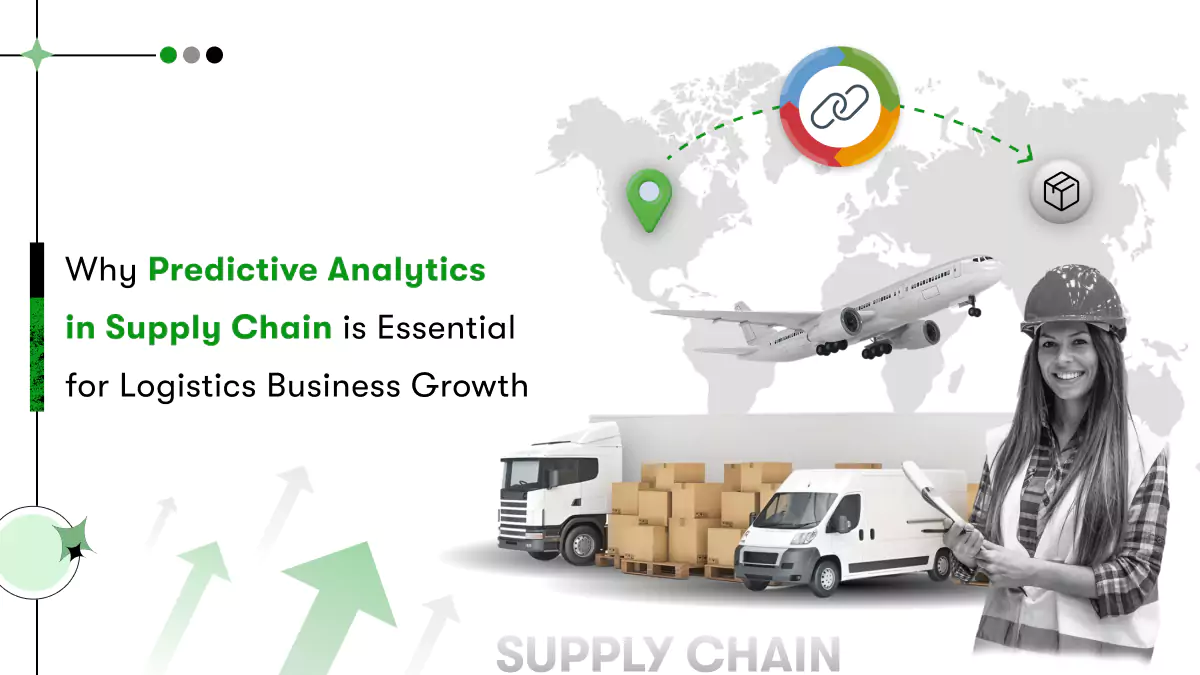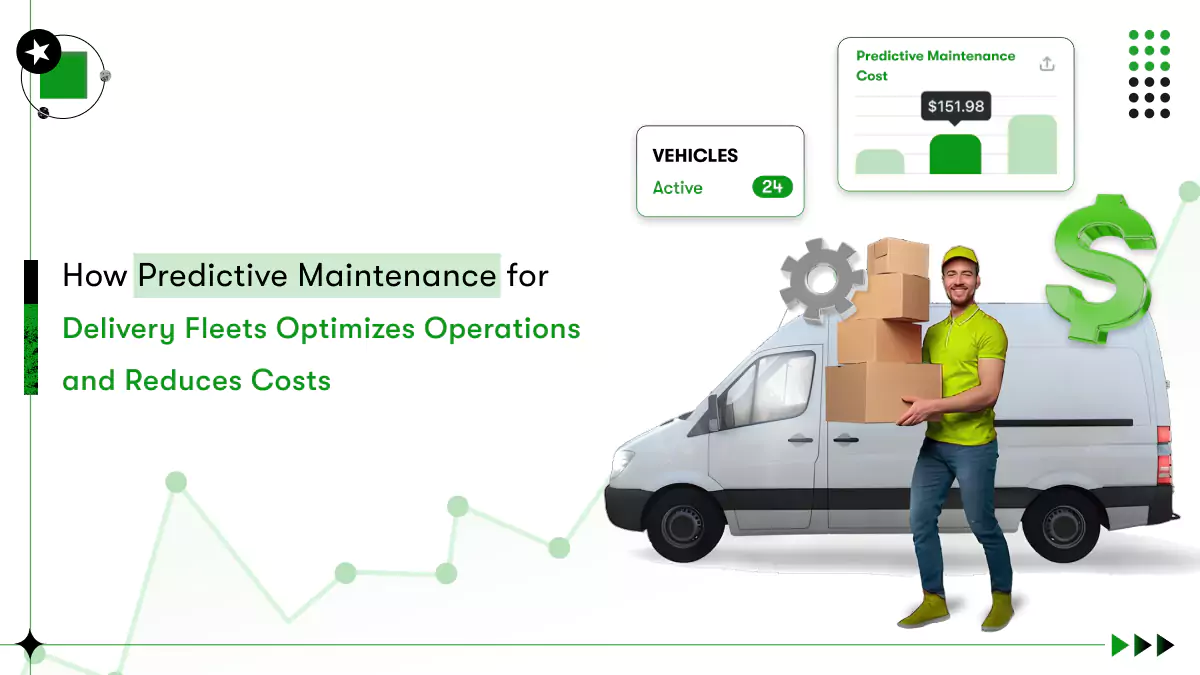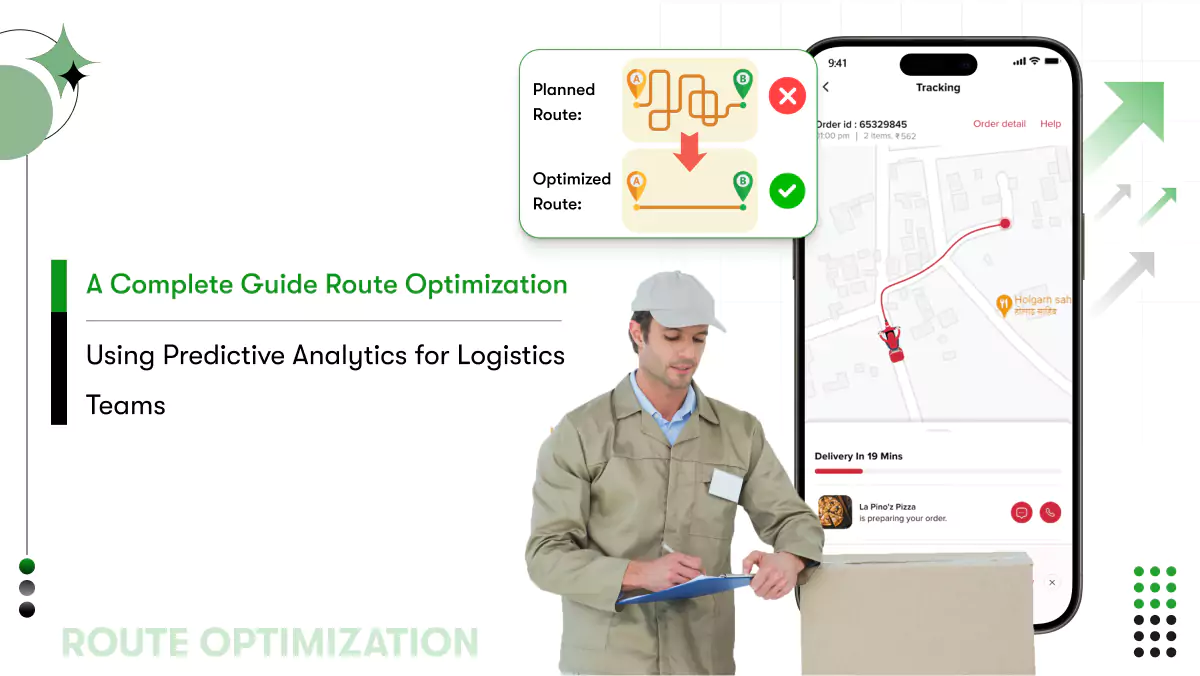ERP revolutionizes the way logistics and transportation companies operate by improving efficiency across all departments like never before. Here’s how:
ERP system provides a holistic view of the company! Logistics and transportation are a dynamic playground of operations. An ERP system serves as a powerful tool that empowers entrepreneurs in the logistics and transportation industry to oversee their operations with a comprehensive approach.
From incoming goods to maintaining stock, packaging to shipping, and meeting deadlines, a logistic owner needs to keep a hawk’s eye over the operations. In this juggle of operations, maintaining efficient processes is paramount.
Besides, they need to quickly navigate between operations to ensure successful management of transportation services. The roller coaster ride often leads to inefficient services or system glitches. And ERP serves as the best solution to address these problems, streamlining the whole supply chain.
But what is an ERP? And what is logistics ERP?
ERP stands for Enterprise Resource Planning System. It serves as a central database of business operations and automates cumbersome tasks.
ERP systems give an analytical view of the entire operational landscape and help entrepreneurs navigate between point A to point B without any hassle. It offers a complete and unified understanding of various processes and activities and mitigates unnecessary complexities.
Now, the logistics company receives tens and hundreds of orders through multiple channels with varied payment methods. All of these customers and stakeholders expect real-time information which the entrepreneurs might fail to provide if they opt for manual operations.
Logistics ERP is a system designed in a way to integrate minute information into the system and improve productivity.
ERP in logistics and transportation not only streamlines internal communication but also backs customer support. It centralizes data and enables real-time visibility, facilitating better decision-making, planning, and resource allocation.
Furthermore, being a robust system, ERP helps entrepreneurs keep accurate track of payments and inventory. Apart from that, ERP implementation automates and enhances operational capabilities across various touch points, reducing manual efforts and minimizing the risks of errors.
Top Five Areas where ERP Implementation Prevails
- Inventory Management;
- Supply chain management;
- Transportation and Shipping;
- Financial reporting;
- HR and Customer relationship management;
Before we look into the benefits of ERP, let us look at the challenges it will address when implemented in the industry.

Challenges that ERP Implementation Addresses
Manual operations, regardless of their nature, are susceptible to errors. In the absence of an ERP system, the traditional transport and logistics sector faces several difficulties, including:
- Inefficient Operations: Any misalignment or lack of coordination in business processes can lead to higher costs, delays in customer delivery, and ultimately dissatisfaction among customers. Without a streamlined system in place, the transport and logistics industry may struggle to optimize operations, resulting in inefficiencies.
- Difficult Tracking of Shipments: Managing orders across multiple channels can be a complex and demanding task. Logistics and transportation managers often face challenges in monitoring inventory levels and tracking shipments accurately.
In some cases, shipments may even go off track, leading to delays, loss of goods, and customer dissatisfaction. An ERP system can provide real-time visibility into inventory and streamline the tracking process, enabling better management of shipments.
- Prone to Fraud: Without proper security measures in place, manual systems are more vulnerable to fraudulent activities. In the absence of an ERP system, data may be dispersed across various sources, making it challenging to monitor and detect fraudulent transactions.
By centralizing data collection and implementing robust security features, an ERP system can help protect against fraudulent activities, ensuring the integrity and security of critical business information.
Now let us look at the benefits of ERP logistics closely:
Better control over inventory and stock visibility:
The manual handling of inventory within the logistics industry can often prove to be inefficient and prone to errors. Any mistake or inaccuracy in the management or tracking of inventory can have detrimental consequences for the entire system.
For this reason, inventory management receives the highest level of attention in the logistics business. To address these challenges, ERP systems have emerged as a valuable solution for efficient inventory management.
Leveraging technologies such as barcodes and RFID tags in ERP systems allows you to streamline the tracking process from the moment an item enters the warehouse to its final shipment in the desired vehicle.
This way, you can scan and capture every minute detail and information pertaining to the inventory, ensuring accuracy and real-time visibility. RFID tags and barcodes in the ERP system also eliminate the need for manual data entry, reducing the likelihood of human errors and increasing overall efficiency.
The automated replenishment feature of ERP systems ensures that inventory levels are constantly monitored and maintained, minimizing the need for human intervention and streamlining the entire process.
Hence, by employing ERP in inventory management, logistics businesses can significantly enhance their operational efficiency. The system ensures that shipments are effectively handled, from proper stock allocation to efficient order fulfillment, ultimately resulting in timely delivery to customers.
Moreover, ERP systems enable businesses to generate detailed reports and analytics, providing valuable insights into inventory trends, demand patterns, and forecasting requirements.

Warehouse Management and third-party handling:
In today’s ever-evolving customer-centric market, businesses must seize every opportunity to leave a lasting impression on their customers. One crucial aspect of ensuring customer satisfaction is the timely management of orders. This is where Enterprise Resource Planning (ERP) systems come into play.
ERP provides real-time visibility of orders, allowing businesses to keep an accurate track of shipments from start to finish. This level of transparency is essential in meeting customer expectations and maintaining a high level of service.
By leveraging ERP in the ecosystem of Third-Party Logistics (3PL), businesses can automate numerous tasks, including order intake, packaging status updates, and delivery timelines.
The automation offered by ERP in 3PL not only streamlines operations but also significantly improves accuracy and efficiency throughout the entire process. By reducing manual intervention and eliminating potential errors, businesses can optimize their supply chain and minimize delays or discrepancies.
Furthermore, the real-time processing capabilities of ERP take the customer experience to another level altogether. With up-to-the-minute information on order status, businesses can proactively address any issues that may arise, such as delays or changes in shipment schedules. This empowers businesses to make informed decisions and take appropriate actions promptly, ultimately enhancing customer satisfaction and loyalty.
Transportation Maintenance and Scheduling:
One of the most prevalent challenges faced by traditional transportation businesses was maintaining real-time updates on the status of shipment vehicles. However, with the implementation of a cloud-based Enterprise Resource Planning (ERP) system, this hurdle can be overcome.
By centralizing all relevant data in a single platform, the cloud ERP system provides managers with easy access to comprehensive information. This includes the ability to track and monitor the fleet, as well as update vehicle locations directly on the platform.
Moreover, drivers themselves have access to the system and are responsible for providing real-time updates on the status of their shipments. Consequently, the implementation of an ERP system brings a sense of organization and systematization to the transportation process.
All the pertinent information is stored in a structured manner, making it easier for managers to plan shipments effectively. With the ability to view real-time data, they can make informed decisions and take necessary actions promptly, improving the efficiency of transportation operations.
ERP transportation management system’s biggest benefit is the reduction in the number of trucks required for transporting shipments. By optimizing routes, consolidating loads, and making efficient use of available resources, you can minimize wasted resources and unnecessary delays. This leads to cost savings, improved productivity, and a more sustainable transportation process.
Distribution management and Business Intelligence:
ERP plays an important role in offering a comprehensive overview of the entire lifecycle of goods within a business. From the moment raw materials enter the warehouse to the location of finished goods, ERP provides actionable insights and facilitates efficient management.
One of the key functions of ERP is to identify and address any potential threats to the system or mitigate risks promptly. By monitoring various aspects of the supply chain, such as inventory levels, production schedules, and quality control measures, ERP helps in identifying vulnerabilities and implementing necessary measures to ensure smooth operations and minimize disruptions.
Moreover, ERP systems generate automatically generated sales reports that are invaluable for forecasting goods demand. These reports provide valuable data that businesses can leverage to optimize their production processes.
By having a clear understanding of customer demand patterns, businesses can plan their manufacturing activities, adjust inventory levels, and streamline their operations to meet market requirements efficiently.
Workforce Management from Remote Locations:
The COVID-19 pandemic taught us the value and efficiency of remote work. While many industries successfully adopted the work-from-home (WFH) system, logistics seemed to pose a challenge. However, with the introduction of ERP in logistics, remote access to your business becomes a reality.
With ERP, you can securely log in to your logistics system from anywhere in the world. This freedom allows you to monitor and manage your business operations, including inventory and sales, even while you are traveling or working from home. The ability to access real-time data and make informed decisions remotely enhances flexibility and productivity.
Also, ERP simplifies workforce management in logistics. The system streamlines a multitude of tasks, making it easier for employees to manage orders and perform their responsibilities without becoming overwhelmed.
By automating processes, providing intuitive interfaces, and centralizing information, ERP empowers employees to enjoy their jobs and work more efficiently. This, in turn, contributes to employee satisfaction and retention.
Furthermore, ERP systems enable effective collaboration among team members, regardless of their physical location. Through shared dashboards, communication tools, and task assignment features, employees can collaborate seamlessly, ensuring smooth operations and timely order fulfillment.
To sum it up:
ERP systems offer a wide range of benefits, and it’s safe to say that implementing an ERP solution in the logistics and transportation business can greatly improve operations. With ERP in place, the entire process can be streamlined, resulting in optimized outcomes for the existing infrastructure.
If you are interested in learning more about logistics ERP software, we would be happy to assist you. Our customized and robust solution can provide you with a competitive edge in the logistics and transportation industry.












 Contact Information
Contact Information